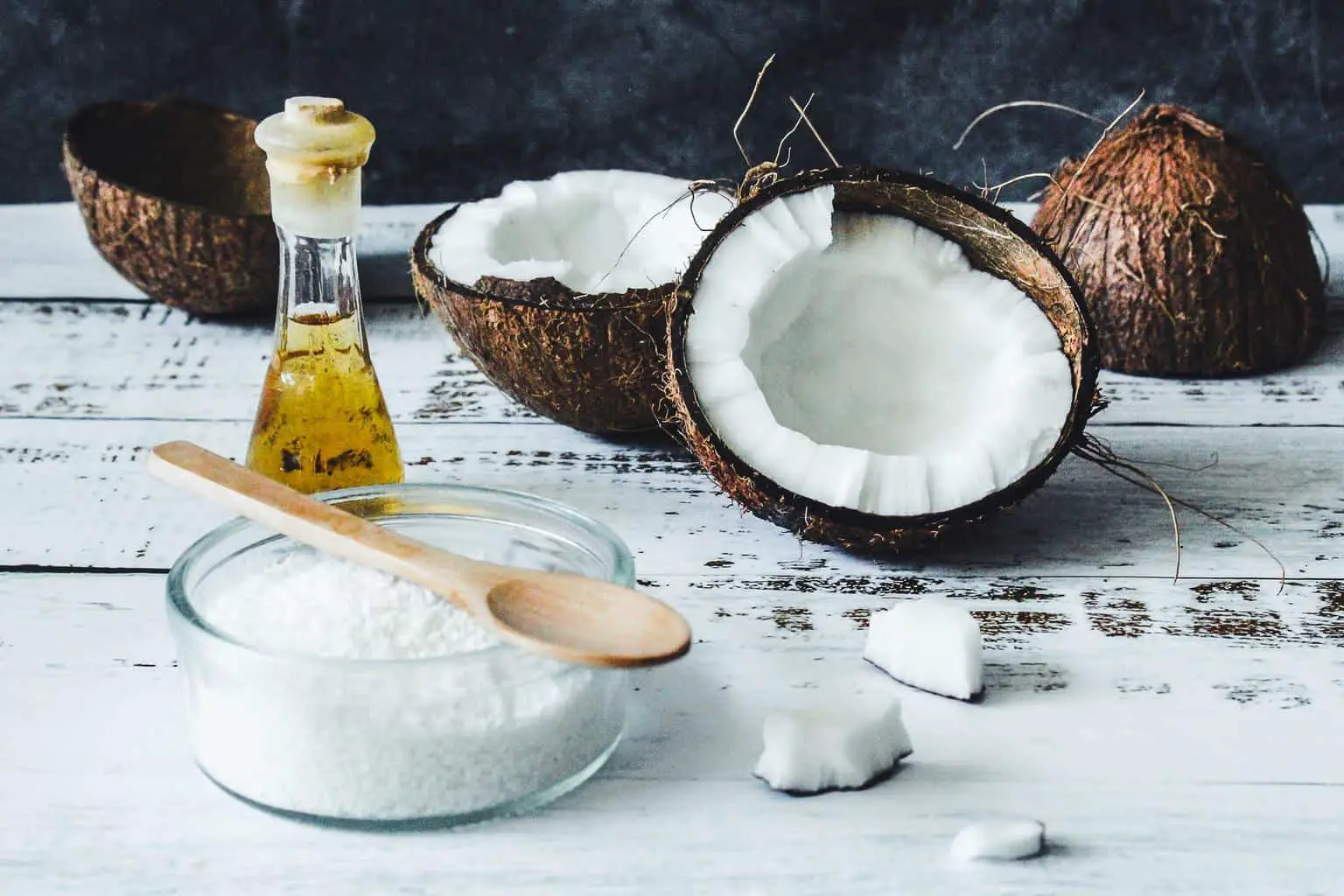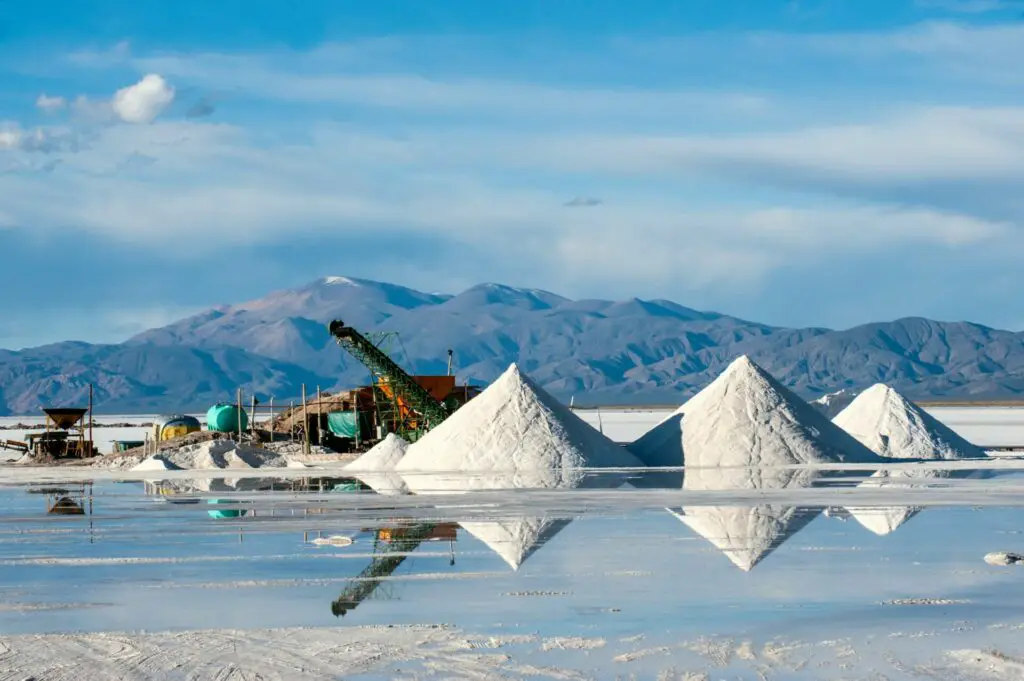Natural, healthy, and delicious: Is coconut oil too good to be true?
While palm oil has infamously deforested Southeast Asia and driven orangutans to near extinction over the last 20 years, coconut oil has been hailed as the antidote we can consume on a clear conscience.
But new studies are emerging, reminding us that agriculture in a modern world is never cut and dry.
And no matter the product, there is an unavoidable environmental impact that can only be reduced through responsible shopping.
For a wider perspective on coconut oil in all of its benefits and pitfalls, we’ll look at the facts.
Coconut’s ‘On-again, Off-again Relationship’ with the Western World
Coconut oil has been used in Asia-Pacific in traditional medicine and local cuisine for over a thousand years.
Europeans began trading it in the late 1800s for cooking and producing soap. And established coconut plantations in the Caribbean and Asia-Pacific.
Coconut oil became widely used in Europe and the U.S. until the supply was cut off during WWII, and replaced by soy.
After the war, coconut oil was slow to catch on again, until its recent popularity was brought on by health food trends, social media, and celebrity endorsements.
Why Is the Question, ‘Is Coconut Oil Sustainable’, Hard to Answer?
Even though consumers prefer products that have a lower impact on the environment, information about the sustainability of many products can be contradictory and confusing.
This is because:
- There isn’t always enough data
- Those who inform us are biased
Jesse Abrams of the University of Exeter points out that many vegetable crops have not been thoroughly studied and therefore we do not have sufficient data to truly understand their environmental impact.
We usually get our information about coconut products from the media. And they get their information from producers, campaigning organizations, governments and traders: people with a vested interest.
Many celebrities that have endorsed the Vita Coco brand have invested in it. And coconut oil brands that make health claims on the label have a tendency to sell more. This is no coincidence.
When it comes to coconut oil, we don’t have much objective information to guide us.
Is Coconut Oil Good for Your Health? (the “Saturated Fat Debate”)
Coconut oil, milk, cream and water are popular options for those who are dairy-free, whether vegan or lactose intolerant.
Even though coconut is an attractive substitute for restrictive diets, coconut oil is 100% fat and 80-90% of that is saturated fat.
British Dietetic Association spokeswoman and dietitian, Linia Patel says you should keep your saturated fat intake to 20-30g a day.
The Harvard School of Public Health and the American Heart Association have begun to warn consumers that, although not as bad for you as butter, coconut oil has been proven to raise total cholesterol and LDL levels.
To add to consumers’ confusion, whether or not saturated fats are bad for you is its own topic for debate and further study.
The ‘saturated fats are bad’ claim comes from the ‘diet-heart hypothesis’, established in an outdated observational study from the 1950’s, that caught on and stuck.
More recent studies carried out in the last 20 years have repeatedly suggested that saturated fats provoke no direct risk of heart disease or death, and suggest the real blame could be carb-heavy, processed foods.
Other Health Claims; Does Coconut Oil Offset Alzheimer’s?
So coconut oil is probably not as bad for you as the ‘anti-saturated fat’ theorists would have us believe.
But what about the other health claims, like, coconut oil encourages fat burning, reduces seizures and prevents Alzheimer’s?
Patel states there is insufficient evidence.
Unfortunately, many of the positive health claims about coconut oil are based on studies that were done with a special formulation of coconut oil (100% MCTs) and not with the commercial coconut oil that we buy from the grocery store.
Cooking with Coconut Oil
Coconut oil is good for frying at high temperatures and adding flavor to a stir fry because it does not break down into a toxic substance when heated over 242°C, unlike other vegetable oils like sunflower and rapeseed oil.
Is Coconut Oil Good for Your Hair and Skin?
Coconut oil can be applied directly to frizzy hair and dry skin as a moisturizer.
It’s an excellent substitute for beauty products, moisturizers and hair care products that contain toxic, non-biodegradable chemicals or microplastics.
Unfortunately, coconut oil comes with other environmental concerns despite being biodegradable. We’ll get into that soon.
Are Coconut Producers Exploited?
Over 75% of coconut oil in the world comes from remote areas of the Philippines, Indonesia, and India. With 95% of production taking place on small farms.
Unfair prices
Many farmers sell to middlemen who don’t pay enough for farmers to invest in their farms or improve their agricultural practices.
In the Philippines, around 40-60% of coconut farmers live in poverty, earning little more than a dollar a day.
Poverty’s Impact
Low-income farmers suffer the following consequences:
- More susceptibility to child labor
- Inability to pay farmhands minimum wage
- Insufficient training in the correct application of pesticides
- Dangerous work conditions without appropriate safety equipment
- Vulnerability to natural disasters, market crashes, and crop failure
The Solution
To ensure that farmers receive a fair wage, you must buy fair-trade coconut oil.
When you buy fair-trade coconuts, the middlemen are cut out of the supply chain and farmers can receive a higher wage.
When farmers receive a better wage, they can:
- Invest in their farms
- Eliminate child labor
- Buy seedlings to replace older, unproductive trees
- Prepare for natural disasters and unstable markets
- Gain access to business loans and better technology
- Improve their agricultural practices (polyculture and work safety)
- Pay their farmhands a livable wage and raise the economic standard for an entire community
The Fair Trade Sustainability Alliance and the Rainforest Alliance are starting to grow their certification process to ensure buyers get transparency and traceability to guarantee that the right amount of money is going to farmers.
Is Coconut Oil Biodegradable?
Coconut oil is a crop-based oil and is therefore considered a biodegradable fluid like soybean oil, vegetable oil, rapeseed oil and sunflower oil.
Is Coconut Oil Bad for the Environment?
Palm oil’s notorious reputation for human rights abuses and forest fires has led numerous consumers to find alternatives, like coconut oil.
Although coconut oil has its major eco-advantages, it isn’t exactly the guilt-free, green option consumers are looking for.
Four of Coconut Oil’s Environmental Wins
- Coconuts are usually grown by small-scale farmers who have more of a tendency to mix coconut with crops like coffee, cacao and banana. This polyculture practice keeps the soil healthy and nutrient-rich.
- Coconuts are resilient when farmed sustainably, meaning there is not much need for pesticides, fungicides or fertilizers. And one tree can bear fruit for up to 60 years.
- Because coconuts must be plucked from trees, they are plucked by hand and heavy machinery is typically not involved in the harvesting process.
- People have found creative ways to use each part of the coconut:
- The water can be drunk
- The sap can create a sweetener
- The wood can be used in building
- The husks can make rope, mattresses and car seats
- The crude form of the oil can be used for eco detergents
- The copra (the dried, white meat inside of the coconut) can be eaten
Four of Coconut Oil’s Environmental Fails
- To reduce our carbon footprint, one of the best things that we can do is shop local. But as mentioned earlier, coconut oil usually travels all the way from Southeast Asia.
This means that coconut oil arrives at a supermarket near you after traveling long-distance and producing transportation-related carbon emissions.
- The demand for coconut oil is growing by 10% while the supply is only growing at 2%.
To keep up with demand, governments in the Asia Pacific are starting to clear more land for coconut oil production.
What are the consequences of rushed, government-incentivized production?- More farmers practice monoculture, which reduces natural nutrients in the soil
- More use of pesticides, fungicides and fertilizers
- Industrialized equipment is used in the refinement process, which has four stages: degumming, neutralization, bleaching, and deodorization
- Potentially hazardous contaminants may be generated during processing, especially during the deodorization process. This requires further study.
Is Coconut Oil More Sustainable Than Palm Oil?
Generally, yes.
But the question needs to change from ‘which product is more sustainable’ to ‘which company is more sustainable’. Often, it’s less about what you buy and more about who you buy from.
For example, if you buy organic, free-trade palm oil from a company committed to sustainability; that’s better than buying the cheap coconut oil from a big-box store with little traceability.
The Pitfalls of Palm Oil
Palm oil has real sustainability potential. It’s a resilient and versatile crop that gets high yield with very little fertilizer or pesticides.
Unfortunately, it’s currently produced in an incredibly unsustainable way.
Many palm oil companies have suffered financial losses as a result of the media and conservation groups calling attention to their negative environmental and socio-economic impact.
As a result, sustainable palm roundtables and farmer support groups have been formed to clean up palm production.
But this isn’t a strong enough reason to deem palm ‘as sustainable’ or ‘more sustainable’ than coconut oil yet.
Oil palm crops are less sustainable than coconut crops in these regards
- Oil palm is produced in more industrial monoculture plantations than coconut oil
- Oil palm produces only oil, whereas many parts of the coconut and it’s tree can be used
- 18.9 million hectares of land are used for oil palm production compared to 12.3 million hectares for coconut
Coconut Oil’s Recent Controversy
University of Queensland’s Erik Meijaard’s recent paper, ‘Coconut oil, conservation and the conscientious consumer’, sparked a much-needed debate around coconut oil.
Meijaard points out that we know more about palm oil’s environmental impact because it has been heavily studied.
And the lack of objective information on coconut oil doesn’t necessarily make it more sustainable.
Is coconut oil a bigger threat to biodiversity than palm oil?
Meijaard’s controversial findings were that coconut oil threatens 18.3 species per million tons of oil produced.
Compared to oil palm, which threatens 3.79 species per million tons of oil produced.
A shocking difference that suggests coconut oil is a far bigger threat to biodiversity than palm oil.
But wait, compare this to previous data in which palm oil threatens 17 species per million hectares of cultivated crop. And coconut oil threatens 5.3 species per million hectares.
By this other standard, coconut oil comes out as the biodiversity ‘good guy.’
This begs the question, how are we supposed to be measuring environmental impact?
By tons produced or by hectares cultivated?
Is Meijaard’s Biodiversity Study Biased Against Coconut Oil?
Critics were quick to point out that Erik Meijaard is the chair of the Palm Oil Task Force of the IUCN. And he has received funding from palm oil companies that directly compete with coconut oil.
Although Meijaard has been open with his funding, critics accuse him of vilifying coconut oil in an attempt to improve palm oil’s reputation.
Meijaard defends his intentions as an attempt to raise awareness on the lack of data associated with coconut production and to call for more research.
Coconut Oil vs. Other Vegetable Oils
Other commonly used vegetable oils include rapeseed, sunflower or olive oil.
Let’s take a quick look at how each of these options stack up, in terms of carbon emissions, harmful pesticides, fertilizers and their impact on biodiversity.
Greenhouse Gas Emissions
If you want to choose your food oil based on greenhouse gas emissions, Ethical Consumer found that coconut oil produces the lowest carbon emissions by a small margin. And olive oil ranks as the highest producer of emissions.
Pesticides and Fertilizers
Fertilizers and pesticides are used the least in coconut oil and palm oil. Sunflower and rapeseed oil rank the worst in this category, but you can avoid pesticides and fertilizers no matter the oil when you buy organic.
Impact on Biodiversity
Sunflower oil and rapeseed oil rank the best for conservation thanks to being grown in less biodiverse, temperate climates.
Palm oil and coconut oil have a higher negative impact on biodiversity because they come from tropical climates rich in biodiversity.
For information about the sustainability of babassu oil, from the rainforests of South America, read here.
What’s Next for Coconut Oil?
Coconut has been described as a ‘time bomb’ because demand is high but supply is low, and 50% of the world’s coconut trees are old, low-productivity trees.
There is so much potential for coconut, yet little investment. And with farmers making low wages, there isn’t much incentive for growth.
Chocolate producer, Barry Callebaut, supported by USAID, formed the first sustainable coconut roundtable in 2019, where the first global ‘sustainable coconut charter’ was drafted.
The charter states that steps towards a more sustainable coconut supply include:
- Cutting out middlemen and putting farmers in direct contact with buyers
- Improved access to markets, finance and technology for farmers
- More training for farmers in how to sustainably boost their supply
Thirty-nine companies (including Nestlé, Unilever and Cargill) joined the roundtable webinar in June 2020, and committed to responsibly sourcing the majority of their coconut supply.
How to Buy Coconut Oil Responsibly (5 Simple Tips)
To make coconut oil more sustainable, brands and consumers can buy ethical, traceable coconut oil.
- Buy organic
- Buy fair-trade certified
- Avoid plastic packaging
- Raw? Refined? Unrefined? Virgin? Extra-virgin? Cold-pressed?
Worry less about the ‘kind’ of coconut oil, and worry more about the brand and their commitment to sustainability - Buy from smaller businesses and cooperatives instead of supermarkets known for their poor treatment of suppliers
Why Is Buying Certified Products Important?
Brands with fair-trade and organic labels go through a rigorous auditing process by accredited third-party certification bodies.
For example, any brand that receives a Rainforest Alliance Certification is evaluated on the farm’s environmental, social and economic impacts.
Conclusion
It can be hard to know what to believe about coconut oil when little objective research has been done.
Coconut oil is a good option as a biodegradable hair and skin moisturizer but you should be skeptical of health claims.
Every product has an environmental impact and coconut is no different. But coconut’s impact is lower than its competitors when it’s produced using sustainable methods.
As the consumer, you have the ability to reduce farmer exploitation and promote environmental conservation through buying fair-trade and organic.
The greatest takeaway here is: How something is grown and how it’s traded is more important than the product.
You Might Also Like…
- Is Fast Food Bad for the Environment? (& What You Can Do)
- Is Fabric Softener Bad for the Environment? (+5 Eco-Friendly Options)
- Is Fuel Dumping Bad for the Environment? (& How Often It Happens)
- Is Electricity Generation Bad for the Environment? (What You Should Know)
- Is Dry Cleaning Bad for the Environment? (4 Surprising Facts)
- Is Diamond Mining Bad for the Environment? (Important Facts)
- Is DEET Bad for the Environment? 4 Effects (You Should Know)
- Is Cat Litter Bad for the Environment? (5 Common Questions)
- Is Burning Cardboard Bad for the Environment? (6 Facts)
- Is Burning Paper Bad for the Environment? (6 Surprising Facts)
- Is Burning Leaves Bad for the Environment? (7 Quick Facts)
- 4 Natural Cleaners for Quartz Countertops
- 6 Eco-Friendly Acrylic Paint Brands (For Sustainable Artists)
- 5 Eco-friendly Alternatives to Acrylic Paint (& How to Make Them)
- Is Acrylic Paint Bad for the Environment? (7 Quick Facts)
- Is Acrylic Yarn Bad for the Environment? 8 Crucial Facts
- Is Acrylic Bad for the Environment? (8 Quick Facts)
- Is Aluminum Foil Bad for the Environment? 7 Quick Facts
- Is Bleach Bad for the Environment? 6 Crucial Facts
- Is Lithium Mining Bad for the Environment? 6 Crucial Facts































